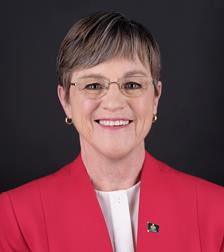
by Mary Rupert
The $4 billion Panasonic project that was landed in DeSoto, Kansas, should also benefit Johnson and Wyandotte counties and surrounding areas, Gov. Laura Kelly said in a telephone interview Wednesday.
“It will have a huge ripple effect through Johnson County, Wyandotte County and beyond,” Gov. Kelly said. She’s also expecting it to benefit Lyon, Miami and Franklin counties, all within a driving distance.
The new plant will make electric vehicle batteries. The project will bring in 4,000 jobs, and following them will be other companies that make more capital investments, Gov. Kelly said. She is anticipating approximately another 4,000 jobs for the suppliers who will set up shop in and around northeast Kansas.
Gov. Kelly currently is making an economic development tour of Kansas, in a sort of victory lap, discussing the recent gains for the state. She is scheduled to make a stop in Kansas City, Kansas, on Thursday.
Wyandotte County should expect to see people moving in, and will probably need more housing, with schools seeing an increase in enrollment, and businesses should have more customers as a result of the new Panasonic plant, she said.
Unequivocally, the $825 million in incentives that Kansas offered Panasonic will be worth it, Gov. Kelly said. There are a lot of guardrails around the incentives, and the plant will not get any incentives until it produces, builds a facility and hires people, she said.
“Panasonic is a well-established, reputable company that doesn’t do anything second-rate,” she said. They won’t make an investment and decide to pull up roots shortly afterward, she said. When they make an investment, they’re in it for the long haul.
Every year Panasonic is up and running, they’ll see $2.5 billion in economic activity in the state of Kansas, Gov. Kelly said. Even in the first year, the state would recapture the incentives, she added.
“You have to invest to grow, and that’s what we did here, and it will be a game changer for the state of Kansas,” she said.
Gov. Kelly said she wanted to see economic development in all areas of the state, in the rural, urban, suburban and inner city areas.
“You can trust that we are working, partnering with our counties, Wyandotte County and others, and cities, to look for economic opportunities that are a good fit for them,” she said. When projects come along and it makes sense for a project to locate in eastern Wyandotte County, the state will be right there working along the folks from Wyandotte County, she added.
Gov. Kelly said she is also working on other issues that will help with economic development. One of those is working with the county to increase the number of quality child care slots available here. Also, there are housing issues here that differ from rural communities, and they are working on solutions to these.
Sometimes Kansas City, Kansas, residents say that they have not been able to get some of the high-paying jobs that are offered here.
Gov. Kelly said Kansas has a very strong Workforce Partnership operation going on, Kansas Works, where they are connecting with potential employees. Residents may research the jobs online and get connected, and there are also Workforce centers where they can go, and receive job counseling on what would be a good fit. Currently, there are about 65,000 jobs on the state’s Workforce database.
Gov. Kelly said the state and the local community, including Kansas City Kansas Community College, are working with a scholarship program that essentially pays for people to go to a community college or technical school to get a certificate or associate degree in a trade, nursing, welding or other program. These graduates are picked up very quickly by employers, she added.
“With all of the success we have had, we know that Kansas in the next few years will be in really good shape,” Gov. Kelly said about the future of the state.
“We need to keep our eye on the ball here – economic development is not something you do one year and let it go,” she said. “This will be ongoing during my administration, to continue to focus efforts on growing the state of Kansas, attracting more business, building our work force.” Younger residents will be able to stay in Kansas with jobs available to them, she said.
The state also is doing recruiting efforts to draw people back to Kansas or invite them to live here for the first time, she added.
When these efforts are packaged together, the state can be pretty attractive, a good job, a place with good schools and good housing, she added.
